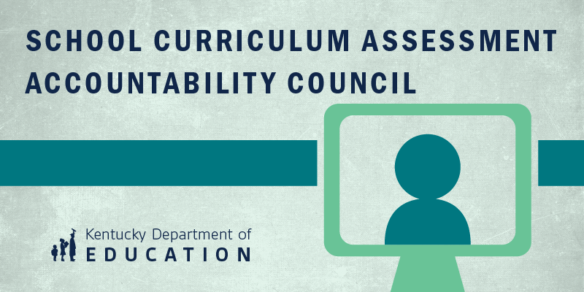
Staff with the Kentucky Department of Education’s (KDE’s) Office of Teaching and Learning presented potential reforms to instructional supports during the School Curriculum, Assessment and Accountability Council (SCAAC) meeting on Nov. 21.
“Our focus for this session is really how can educational leaders support increased student access to individualized instruction, assessment and intervention,” said Jana Beth Francis, chair of SCAAC and assistant superintendent for Daviess County Public Schools.
Senate Bill 9 (2022), the Read to Succeed Act, amended KRS 158.305 to require the Kentucky Board of Education (KBE) to promulgate administrative regulations to further define a multi-tiered system of supports (MTSS). 704 KAR 3:095 already establishes a response to intervention for students in kindergarten through 3rd grade, but the changes KDE plans to propose to the KBE would broaden the regulation to cover kindergarten through 12th grade through the implementation of Kentucky’s Multi-Tiered System of Supports (KyMTSS).
“One of the major shifts is that we are encouraging the field to tailor instruction, and specifically intervention supports, to meet the individual student’s needs,” said Micki Ray, KDE’s chief academic officer. “Historically, we have often looked for a one-size-fits-all, cookie-cutter approach to interventions, but now, we are promoting targeted instruction and intervention based on universal screening and diagnostic assessment data that is truly tailored to meet the individual needs of students within our classrooms.”
MTSS is a multi-level prevention system designed to maximize student achievement and social and behavioral competencies through an integration of universal instruction, assessment and intervention. KyMTSS establishes six essential elements, including the Tiered Delivery System, broken down into the following:
- Tier 1: Universal instruction – Instruction provided to all students based on the Kentucky Academic Standards.
- Tier 2: Targeted intervention – Supplemental evidence-based intervention in addition to and in alignment with Tier 1 universal instruction for students identified by universal screening and diagnostic assessment data as being at-risk for not meeting grade-level academic or behavioral benchmarks.
- Tier 3: Intensive intervention – In addition to Tier 1 universal instruction and Tier 2 targeted intervention, evidence-based intervention services are provided to a student based on diagnostic assessment and progress monitoring data, with the intensity and duration matched to the student’s individualized academic and behavioral needs.
The proposed changes also include a mechanism to monitor and report progress through individual student reports shared with the family of each student that summarize the student’s academic skills, behavior and any intervention plans and services being delivered.
“Communication to parents and families is already happening across districts and schools within our state, but it was important to formalize that within the new version of the regulation,” said Ray.
The new regulation also would require districts to submit evidence demonstrating districtwide implementation of MTSS by Oct. 1 of each year.
Ray said many districts already have started implementing MTSS. Kentucky Teacher recently featured Franklin County, Letcher County and Clinton County and shared their progress with MTSS implementation.
In other business:
- KDE staff provided an update on implementation of the Read to Succeed Act;
- Members of the Kentucky United We Learn Council provided an update on the council’s meeting in November; and
- KDE staff provided an update on assessment and accountability following the release of the 2022-2023 Kentucky School Report Card.
The next SCAAC meeting is scheduled for March 19.




Leave A Comment